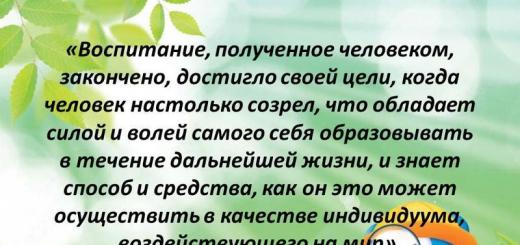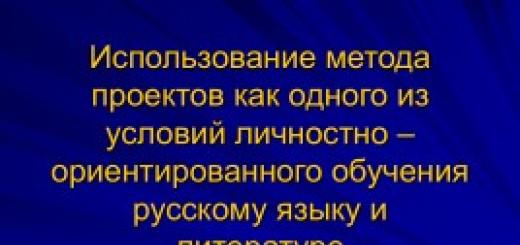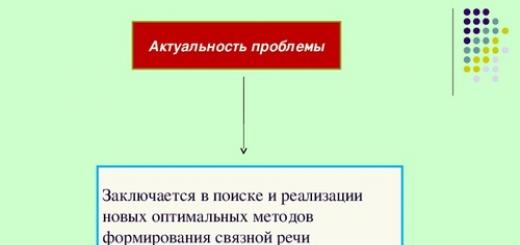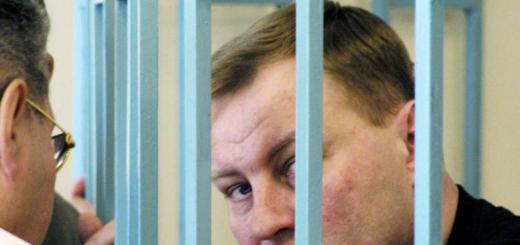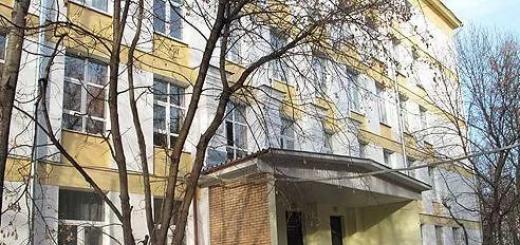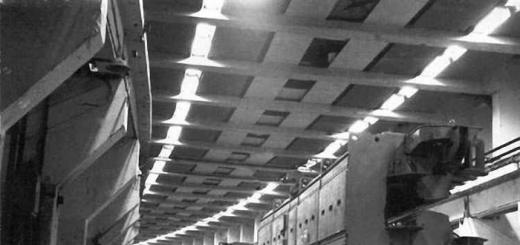People's Writer of Belarus. The uncompromising nature of Bykov's works. He lived abroad for several years. Monument to V. Bykov. Remain human in the flames of war. Memorable places. The truth of books about war. Works by Vasil Bykov. Vasil Vladimirovich Bykov. Alpine ballad. Vasil Bykov was awarded the USSR State Prize.
“Blaginina” - What do you think about the girl. Poems read. Which poet will we meet today? The baggage cashier's daughter. Russian poet, translator. Conversation. Elena Aleksandrovna Blaginina. “Cuckoo”, “Kitten”. Biography and creativity of Elena Aleksandrovna Blaginina. Elena Alexandrovna came to children's literature in the early 30s. Reading the poem "Kitten". Working on poems.
"Konstantin Batyushkov" - Hereditary tendency. Batyushkov Konstantin Nikolaevich. Patriotic War of 1812. Service. Philosophy of the poet. The birth of a great poet and prose writer. Front-line poet. Creation. Collection of Batyushkov. Belinsky. Love to motherland. Discoveries in literature.
“Balmont’s verse “Snowflake”” - Keep your soul pure. Azure. End of the road. Snowflake. Konstantin Balmont. Don't make others angry, and don't be angry yourself. Unexpected twists of fate. A pure soul. Winter in paintings. Working on a poem. The road is long. Gray-haired housewife. Wind. Konstantin Dmitrievich Balmont. Unknown country. Glides in the shining rays. Text. Soul. Stormy road.
"White" - Born. First date. Bely meets the Symbolists. Gets close to the Solovyov family. Borya Bugaev in childhood. He graduated from the best private gymnasium in Moscow in 1899. Goes abroad. Begins correspondence with A. Blok. Returns to his homeland. Last years of life. Death of a writer. Literary genre. Marries Asa Turgeneva. The beginning of a new period of creativity. Boris Nikolaevich Bugaev. Andrey Bely. The first poetry collection.
“The Life of Vitaly Bianki” - Fairy tales and stories. The need for artistic embodiment of knowledge. Gymnasium. Works. Forest houses. Bianchi participated in scientific expeditions. Thematic cycles. Creation. Plants and animals. Children's story by Bianca. Vitaly Bianchi. Orange neck. Forest storyteller.
Slide 1
Slide description:
Slide 2
Slide description:
Slide 3
Slide description:
Slide 4
Slide description:
Slide 5
Slide description:
Baratynsky’s first works appeared in print: messages “To Krenitsin”, “Delvig”, “To Kuchelbecker”, elegies, madrigals, epigrams. In 1820, the poem “Feasts” was published, which brought great success to the author. Baratynsky’s first works appeared in print: messages “To Krenitsin”, “Delvig”, “To Kuchelbecker”, elegies, madrigals, epigrams. In 1820, the poem “Feasts” was published, which brought great success to the author. In 1820 - 26 Baratynsky served in Finland and wrote a lot. A prominent place in his work of this time is occupied by the elegy: “Finland”, “Disbelief” (“Do not tempt me unnecessarily...”), set to music by M. Glinka, “Waterfall”, “Two Shares”, “Truth”, “Recognition”, etc. Attempts by friends to achieve an officer rank for Baratynsky were for a long time met with the emperor’s refusal, the reason for which was the independent nature of the poet’s work, oppositional statements that could often be heard from Baratynsky.
Slide 6
Slide description:
He was not a Decembrist, but he was also captivated by ideas that were embodied in the activities of secret societies. His political opposition manifested itself in the elegy “The Tempest” (1825). In April 1825, Baratynsky was finally promoted to officer, which gave him the opportunity to control his destiny. He retired, married and settled in Moscow, where in 1827 a collection of his poems was published - the result of the first half of his work. He was not a Decembrist, but he was also captivated by ideas that were embodied in the activities of secret societies. His political opposition manifested itself in the elegy “The Tempest” (1825). In April 1825, Baratynsky was finally promoted to officer, which gave him the opportunity to control his destiny. He retired, married and settled in Moscow, where in 1827 a collection of his poems was published - the result of the first half of his work.
Slide 7
Slide description:
Slide 8
Slide description:
Slide 9
Slide description:
In 1832, the magazine "European" began to be published, and Baratynsky became one of its most active authors. He turns to prose and drama. After the magazine closed (only two issues were published), he fell into hopeless melancholy. In 1832, the magazine "European" began to be published, and Baratynsky became one of its most active authors. He turns to prose and drama. After the magazine closed (only two issues were published), he fell into hopeless melancholy. In 1835, the second edition of his works was published, which then seemed to be the result of his creative path. But Baratynsky’s last book was the collection “Twilight” (1842), which combined poems from the second half of the 1830s - early 1840s. In 1843, the poet, having gone abroad, spent six months in Paris, meeting with writers and public figures of France. In Baratynsky’s poems of that time there is cheerfulness and faith in the future
Slide 10
Slide description:
Baratynsky died suddenly on July 29, 1844 in Naples. More than a year later, his body was transported to St. Petersburg and, in the presence of several friends, interred. Baratynsky died suddenly on July 29, 1844 in Naples. More than a year later, his body was transported to St. Petersburg and, in the presence of several friends, interred. Newspapers and magazines of that time barely responded to his death. Only Belinsky said then: “A thinking person will always re-read Baratynsky’s poems with pleasure, because he will find a person in them - a subject eternally interesting to a person.” Baratynsky's humanism, his inherent subtlety of psychological analysis, the depth of his penetration into the contradictions of reality, and his noble mercilessness towards himself have made his poems close and necessary to our time.
Slide presentation
Slide text: Evgeny Abramovich Baratynsky Literary reading 4th grade Teacher: Guseva N.N. Municipal educational institution "Vertikosskaya secondary school"

Slide text: Years of life 1800 - 1844 Evgeny Baratynsky was born on March 2, 1800. In the Mara estate, Tambov province. The son of a retired lieutenant general from the inner circle of Emperor Paul I and the former maid of honor of Empress Maria Feodorovna

Slide text: At the age of 5 the boy learned to read and write in Russian, and at the age of 6 he spoke French and Italian well. Later he continued his studies in St. Petersburg, first at a private boarding school, and then at the Corps of Pages. For a long time he could not get used to life in St. Petersburg.

Slide text: Falling under bad influence, Baratynsky in 1816. committed a serious offense - took part in theft. The matter reached the king. For “unsuitable behavior” Baratynsky was expelled from the corps without the right to enter any service other than as a private in the army. in 1818 he entered military service as a private. Imperial Corps of Pages

Slide text: Attempts by friends to achieve an officer rank for Baratynsky were long met with the emperor’s refusal, the reason for which was the independent nature of the poet’s work. Only in April 1825, after almost seven years of military service at the lower rank, Baratynsky (on the recommendation of A.A. Zakrevsky) was finally promoted to officer, which gave him the opportunity to control his destiny.

Slide text: At this time, fate brought Baratynsky together with Delvig, who morally supported him, introduced him to Pushkin, and introduced him to writing circles. Baratynsky was very grateful to Delvig for this. Delvig A.A.

Slide text: Autumn 1843 Baratynsky and his family go on a trip abroad. Shortly before the trip, Baratynsky wrote a poem about the Muranovo estate near Moscow, where he lived in recent years before the trip.

Slide text: “Baratynsky,” argued Pushkin, “is one of our excellent poets. He is original with us, because he thinks... he thinks in his own way... while he feels strongly and deeply.”

Slide text: “Reading Baratynsky’s poems, you cannot deny him your sympathy, because this man, feeling strongly, thought a lot, and therefore lived, as not everyone is given to live,” Belinsky wrote about Baratynsky. Belinsky V.G.
Slide No. 10

Slide text: Baratynsky is a poet passionately seeking truth. He could rightfully say about himself: “And just as I found a friend in a generation, I will find a reader in posterity.” And the poet was not mistaken. His name is known to modern readers; books of his poems are published. A state museum has been opened in the Muranovo estate near Moscow.
Slide 1
Slide description:
Slide 2
Slide description:
Slide 3
Slide description:
Slide 4
Slide description:
Slide 5
Slide description:
Baratynsky’s first works appeared in print: messages “To Krenitsin”, “Delvig”, “To Kuchelbecker”, elegies, madrigals, epigrams. In 1820, the poem “Feasts” was published, which brought great success to the author. Baratynsky’s first works appeared in print: messages “To Krenitsin”, “Delvig”, “To Kuchelbecker”, elegies, madrigals, epigrams. In 1820, the poem “Feasts” was published, which brought great success to the author. In 1820 - 26 Baratynsky served in Finland and wrote a lot. A prominent place in his work of this time is occupied by the elegy: “Finland”, “Disbelief” (“Do not tempt me unnecessarily...”), set to music by M. Glinka, “Waterfall”, “Two Shares”, “Truth”, “Recognition”, etc. Attempts by friends to achieve an officer rank for Baratynsky were for a long time met with the emperor’s refusal, the reason for which was the independent nature of the poet’s work, oppositional statements that could often be heard from Baratynsky.
Slide 6
Slide description:
He was not a Decembrist, but he was also captivated by ideas that were embodied in the activities of secret societies. His political opposition manifested itself in the elegy “The Tempest” (1825). In April 1825, Baratynsky was finally promoted to officer, which gave him the opportunity to control his destiny. He retired, married and settled in Moscow, where in 1827 a collection of his poems was published - the result of the first half of his work. He was not a Decembrist, but he was also captivated by ideas that were embodied in the activities of secret societies. His political opposition manifested itself in the elegy “The Tempest” (1825). In April 1825, Baratynsky was finally promoted to officer, which gave him the opportunity to control his destiny. He retired, married and settled in Moscow, where in 1827 a collection of his poems was published - the result of the first half of his work.
Slide 7
Slide description:
Slide 8
Slide description:
Slide 9
Slide description:
In 1832, the magazine "European" began to be published, and Baratynsky became one of its most active authors. He turns to prose and drama. After the magazine closed (only two issues were published), he fell into hopeless melancholy. In 1832, the magazine "European" began to be published, and Baratynsky became one of its most active authors. He turns to prose and drama. After the magazine closed (only two issues were published), he fell into hopeless melancholy. In 1835, the second edition of his works was published, which then seemed to be the result of his creative path. But Baratynsky’s last book was the collection “Twilight” (1842), which combined poems from the second half of the 1830s - early 1840s. In 1843, the poet, having gone abroad, spent six months in Paris, meeting with writers and public figures of France. In Baratynsky’s poems of that time there is cheerfulness and faith in the future
Slide 10
Slide description:
Baratynsky died suddenly on July 29, 1844 in Naples. More than a year later, his body was transported to St. Petersburg and, in the presence of several friends, interred. Baratynsky died suddenly on July 29, 1844 in Naples. More than a year later, his body was transported to St. Petersburg and, in the presence of several friends, interred. Newspapers and magazines of that time barely responded to his death. Only Belinsky said then: “A thinking person will always re-read Baratynsky’s poems with pleasure, because he will find a person in them - a subject eternally interesting to a person.” Baratynsky's humanism, his inherent subtlety of psychological analysis, the depth of his penetration into the contradictions of reality, and his noble mercilessness towards himself have made his poems close and necessary to our time.
BARATYNSKY Evgeniy Abramovich - poet, representative of the Pushkin galaxy. From an old Polish family that settled in the 17th century. in Russia. Baratynsky received his upbringing initially in the village, under the supervision of an Italian uncle, then in the St. Petersburg French boarding house and page corps. As a result of a serious offense - the theft of a fairly large sum of money from the father of a comrade - he was expelled from the corps and prohibited from entering service forever. This punishment greatly shocked Baratynsky (he suffered from a serious nervous disorder and was close to suicide) and left an imprint on his character and subsequent fate. In order to remove the burdensome stigma, Baratynsky entered one of the St. Petersburg regiments as a private. Baratynsky served in the lower rank for seven years (five of them in Finland) and only in 1825 was promoted to officer. After production he retired; in subsequent years he lived either in Moscow or on his estates. He died during a trip abroad, in Naples, at the age of 44.
